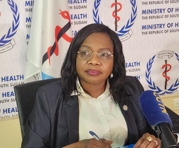The National Ministry of Health in South Sudan on Monday issued a public health alert following the confirmation of Marburg Virus Disease (MVD) cases in Jinka, southern Ethiopia, and urged citizens to remain calm but vigilant as authorities heighten preparedness, surveillance, and public awareness.
Health Minister Sarah Kleto Hassen told journalists that the outbreak was officially declared by Ethiopian authorities on 14 November 2025, after laboratory tests detected and confirmed the virus.
“We have been informed of confirmed Marburg Virus Disease cases in Jinka Town, southern Ethiopia,” she said. “I want to reassure the public that no confirmed cases have been reported in South Sudan, but we are taking all necessary steps to prevent any importation.”
She said the Ministry, working with the World Health Organisation (WHO) and other partners, has intensified surveillance and response mechanisms.
“We immediately convened an emergency meeting with all health partners and activated our technical pillars to lead preparedness, surveillance, and response,” she added.
The Public Health Emergency Operations Centre has since been placed on high alert, while screening and reporting systems are being strengthened across national and state levels. The ministry identified Kapoeta East, Pibor, Pochalla, and Akobo as high-risk counties because of frequent movement along border points.
Meanwhile, Dr. Mabior Kiir Kudior, Chief of Planning and Information at the emergency operations centre, said more proactive measures have already begun.
“We have developed a 72-hour response plan and issued a travel advisory,” he said. “A national rapid response team is on standby and will be deployed to Kapoeta East, Akobo, Pochalla, and the Greater Pibor Administrative Area to conduct assessments and monitor population movements, especially in wildlife and livestock corridors.”
He added that the plan is being implemented with the support of the WHO and the Africa CDC, saying it is “active and operational.”
For his part, Dr. Humphrey Karamagi, the WHO Country Representative for South Sudan, said the latest figures released by Ethiopia indicate a small but serious outbreak.
“So far, there are nine confirmed cases, including six deaths, two patients still under treatment, and one recovery, so it is not yet fully fatal,” he said. “All the cases are from the same locality in Jinka, and contact tracing is ongoing with no further confirmed cases yet identified.”
He praised South Sudan’s response measures, noting that they are in line with the International Health Regulations (2005).
“The focus is on prevention, detection, and response,” Dr. Karamagi said. “Public awareness, rapid deployment teams, and the availability of medical kits will strengthen our ability to identify and manage any potential cases.”
The ministry maintained health advisory messages, including regular hand-washing, avoiding contact with bodily fluids, keeping away from those showing severe fever, vomiting, diarrhoea, or bleeding, and not handling bodies of suspected victims.
For suspected cases or emergencies, the public is urged to call the toll-free hotline 6666.




